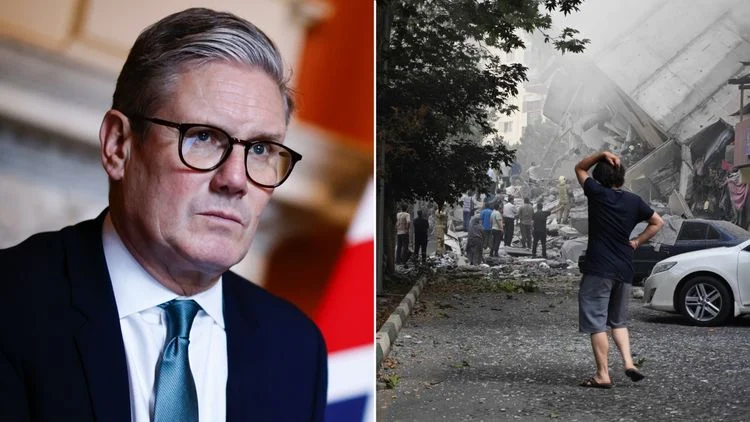UK PM Starmer: "Israel’s Strike on Iran’s Nuclear Sites Deeply Concerning, UK Not Involved"
Following Israel’s airstrikes on Iran’s nuclear facilities, fears of a full-scale war erupting in the Middle East have intensified. In this context, British Prime Minister Sir Keir Starmer has called on all parties to exercise restraint to preserve peace and reduce tensions.
UK PM Starmer: "Israel’s Strike on Iran’s Nuclear Sites Deeply Concerning, UK Not Involved"
UK PM Starmer: "Israel’s Strike on Iran’s Nuclear Sites Deeply Concerning, UK Not Involved"
Following Israel’s airstrikes on Iran’s nuclear facilities, fears of a full-scale war erupting in the Middle East have intensified. In this context, British Prime Minister Sir Keir Starmer has called on all parties to exercise restraint to preserve peace and reduce tensions.
He stated, “These reports are deeply concerning, and we urge all parties to step back from the brink and maintain peace. Escalation serves no one’s interest. Preserving stability in the Middle East is a top priority, and we are working with partners to de-escalate the situation.”
The UK government has clarified that it had no role in the attacks. It is closely monitoring the developments. An emergency COBRA meeting has been convened by the Prime Minister this afternoon to assess the unfolding crisis.
Meanwhile, Foreign Secretary David Lammy has canceled his scheduled visit to the United States, where he was supposed to meet US Secretary of State Marco Rubio in Washington. Due to the current crisis, Lammy has decided to remain in the UK to manage the situation.
In a message on X (formerly Twitter), Lammy said, “Stability in the Middle East is vital for global security. Any further escalation poses a significant threat to the region’s peace and stability — and it serves no one’s interest.”
US Secretary of State Marco Rubio has made it clear that the United States had no involvement in the strike, calling it a unilateral move by Israel. “Our top priority is to ensure the safety of American forces stationed in the region,” he said.
Analysts are describing the strike as the largest military blow against Iran since the Iran-Iraq War in the 1980s.
Israeli Prime Minister Benjamin Netanyahu claimed, “We have struck at the heart of Iran’s nuclear enrichment program and its weapons development infrastructure. This operation will continue until the Iranian threat is completely eliminated.”
However, Iran’s state television reported that the attack killed top Iranian military leaders, including Revolutionary Guard commander Hossein Salami and Armed Forces Chief of Staff General Mohammad Bagheri.
The issue has sparked political debate within the UK. Shadow Foreign Secretary Dame Priti Patel of the opposition Conservative Party said, “The world is becoming increasingly dangerous, posing significant threats to our national interests, security, and defense. The UK must use its influence and diplomacy to help restore stability in the Middle East.”
Liberal Democrat leader Sir Ed Davey added, “Following Israel’s overnight strikes, there is a real risk of a full-scale conflict in the Middle East — and the world, including the UK, is rightfully alarmed. The UK must work with its allies to diplomatically curb Iran’s nuclear ambitions — not through war.”










